- News
- Reviews
- Bikes
- Components
- Bar tape & grips
- Bottom brackets
- Brake & gear cables
- Brake & STI levers
- Brake pads & spares
- Brakes
- Cassettes & freewheels
- Chains
- Chainsets & chainrings
- Derailleurs - front
- Derailleurs - rear
- Forks
- Gear levers & shifters
- Groupsets
- Handlebars & extensions
- Headsets
- Hubs
- Inner tubes
- Pedals
- Quick releases & skewers
- Saddles
- Seatposts
- Stems
- Wheels
- Tyres
- Tubeless valves
- Accessories
- Accessories - misc
- Computer mounts
- Bags
- Bar ends
- Bike bags & cases
- Bottle cages
- Bottles
- Cameras
- Car racks
- Child seats
- Computers
- Glasses
- GPS units
- Helmets
- Lights - front
- Lights - rear
- Lights - sets
- Locks
- Mirrors
- Mudguards
- Racks
- Pumps & CO2 inflators
- Puncture kits
- Reflectives
- Smart watches
- Stands and racks
- Trailers
- Clothing
- Health, fitness and nutrition
- Tools and workshop
- Miscellaneous
- Buyers Guides
- Features
- Forum
- Recommends
- Podcast
feature
 A mini guide to cycling words and phrases Nov 2023
A mini guide to cycling words and phrases Nov 2023A mini guide to cycling words and phrases that have been lost, found or reborn (and some that are just downright irritating)
We all have cycling terms and phrases that we either love or hate, and over the years they come and go. Sometimes old terms get trendified once more and make a return to our two-wheeled vocabulary.
Of course there are many phrases that have come around again from past, and there are also words that have been consigned to history because of bygone bike technologies or ideals. There are also totally new cycling-specific terms that have emerged in the past few years, often based around general trends of terminology... and of course, there are those spurned by the commentators and media that accompany the sport.
Here is a selection of terms that are seemingly lost, some that have emerged in the past few years, plus a handful that can bemuse or irritate those who do work in the bike industry and cycling media. It's worth noting that this is a slimmed down selection, and you can always check out our A-Z of cycling jargon feature for a comprehensive guide to cycling-specific lingo.
Do let us know your own favourites, new or old (and your pet hates) in the comments below...
Gone but not forgotten
High Pressures
Long before 700c ruled the rolling stock roost, it was the humble 27x1 ¼ tyres and wheels that were the go-to for most regular sporting and club cyclists - even for competitive riders during the winter months, and for training.
Although they can still be found, the 'HPs' of old are no longer de-rigueur, and thus the term is virtually redundant.
'Tubs' (tubular tyres)
Okay, so tubs - that is, tubular tyres that are stuck onto the wheel rim with glue - are still around, and used in many scenarios by both pro riders and amateurs alike. Step back into the pre-and early era of 700c tyres, and tubs ruled the roost for almost all racers and wannabe racers. Sticky hands, evenings spent trying to repair and stitch them back together... they were fun to ride, but a frustrating and expensive habit.
Souplesse
Surprisingly enough, this one doesn’t seem to have made a return to grandeur, in a time where French words seem to be so popular in cycling terminology.
Souplesse, meaning suppleness, agility and grace of movement, was something of a highly-regarded mantle applied to the great and graceful fast pedallers of old, such as Jacques Anquetil. It was something most young riders aspired to be tagged with, but it's a term rarely used today.
Tester
Still occasionally used, but perhaps not much as it was many years ago. The mantle tester was something applied to time trial riders (who liked to test themselves against the clock), and as time trials were at the core of the British competitive cycling scene for decades, it was a very common term - although when applied by a road racer, it was often preceded with the word 'thick' and a wink...
Skid lid
When the near-useless, but era-defining hairnet helmets of old were outed and those early dustbin lid-like Styrofoam domes started to top our heads, these ugly monsters were often termed as skid lids. For obvious reasons, it's a term that is used much less these days.
Poseur
Often used but rarely written down in the pre-internet world, and when it was used it was scribed often with the English translation of 'poser'. It was often applied to those of a fashion-conscious cycling nature, and often without the physical goods to back their image up on the road.
Strapped in
Before the advent of clipless pedals and being clipped in, we were all strapped in. Or rather, our feet were strapped in place with toe straps, as opposed to any other connotation. This is a term that really is lost in its original cycling context.
Clubman
Cycling clubs get good and bad raps, and that is understandable, but long ago almost all regular riders were members of the local cycling club. Many of them, and those who didn’t race regularly, were known as 'clubmen', and being deeply involved with the club was all part of meaning. Winning the clubman of the year award was quite the honour back then.
Cotterless
Those who started cycling pre-1980s were no doubt raised with a hammer and punch in one hand, these being to hammer those rounded wedge-shaped chromed steel cotter pins that held our cranks to the bottom bracket axel, and then to remove them.
Ride back a little further in time and cottered cranks were ridden by all racers too, and they were always steel. Going cotterless was a big step in status in cycling terms, meaning that you progressed to bolt-on tapered alloy cranks, which are still lingering on classic bikes of old.
New or reborn cycling terms
Luft
Being the German word for air, luft is a curious one in cycling terms, because its origins aren't really known. The word in its cycling context was arguably popularised by trendy cycling apparel brands who printed it all over peaked caps, which were turned up so that you could read the word luft.
Now the term is widely associated with the art of turning your peak up, for some reason, and it has really caught on in certain cycling circles.
Build
For some reason, the term 'build' is now applied to bikes that are fully, or erm, partly customised - or should we say expensive, and simply assembled with mix-and-match components, much like many did back in the pre-mass production era.
Although 'new build' is also applied to houses, in cycling terms it seems to come with a certain price tag and lofty image these days.
Segment
It’s strange how many cyclists these days talk in terms of segments, which are certainly not like those you used to get in a Terry’s Chocolate Orange.
Segments need little introduction to most, and is almost certainly derived from Strava speak. It's something that didn’t really exist in cycling terms in the past, although there were always pave 'sectors' in Paris-Roubaix.
Watopia
Not unlike Narnia (or Utopia), Zwift’s fictional Watopia seems to be a place that many cyclists find tucked away in their garages and back rooms.
There are no lions around, or certainly not talking ones. I mean, who would have imagined such a place just a few years ago? Let alone it be talked about and 'visited' by countess riders, without ever even leaving their homes...
Helpers
Team Sky introduced us to many new and often dubious cycling terms, with one being 'helper'.
The term, of course, applies to those who help the riders in a team, erstwhile known as soigneurs (or 'swannies' by many riders).
'Helper' does conjure up all kinds of Little Britain-style images. It's a strange one indeed, especially given the trend towards calling everything cycling-related by French names.
Marginal gains
When Sir Dave Brailsford rolled out his 'marginal gains' masterplan for cycling dominance, many sneered (included some of his own riders) - and yet, whether he was truly onto something or whether maximal gains are still at the core of performance enhancement, this is one term that is now used to excess, both in belief and in jest.
Cockpit
Strangely, apart from the 'bars' there was no mention of 'cockpit' amongst cyclists until bars on some race-orientated road bikes began to look like the flight deck of an F16 - hence the updated terminology, I guess.
Cockpit often comes paired with the term 'build', with those cockpits admired by some. It's something that can be bemusing to many of us who are happy with our good old-fashioned bars...
Graveleur
It does sound (and is) a rather French and grand term, and one used for those who like a bit of rough (on the bike, that is) on gravel, as the word suggests.
This term seems to have caught on, and has its very own cult-like image to go with it. Even if it is a rather large and growing cult, it's one that would surely score a tongue-in-cheek wink from the old-school rough stuffers out there.
Espoir
Espoir was a term often applied by the French for their races pitched at younger riders, but it ended up with its whole own identity and category. Essentially, we're talking about a rider under the age of 23, a category that didn’t exist years ago. Now, in a sport which is increasingly dominated by young guns, perhaps it’s time for a re-think.
Thinking about it, there were no masters in the old days either. You were simply a vet when you got to 40 (or 35 for a while).
Granny ring
The term 'granny ring' came around in the early days of mountain biking. It was used to describe the tiny inner ring of a triple chainset, and somehow it's found its meek way into road and gravel riding, a place where a granny ring was once a simple 42T little ring.
Overused and gear-grinding cycling terms and phrases
Mano a mano
Okay, it’s not a new term, but it was arguably Phil Liggett who popularised it within cycling, and it now seems to be applied to any kind of one to one, or even to bigger breakaway showdowns, and it does have a ring of overuse to it.
Chapeau
Thanks again to Phil Liggett (we think), chapeau has been proliferated by commentators ever since he started saying it, and it's now widely used by many cyclists in countless scenarios, although at times it does kind of seem a tad overcooked.
Super
It is seemingly impossible so hear an interview with a pro rider these days without the world super being added to every other sentence; “super happy” “super nice” “super hard, super-fast,” but no super trooper - yet.
Embargo
If you are involved with the cycling media, you will know that every other email you get will have an embargo on it. I mean, why not just wait and send it later? (yes, we know why really!)
There are brands out there that are worse than others with embargoed stuff, and it does tend to grind with some. Strangely it can be applied to just about anything a brand does, even a new colour scheme, bar end plug or ambassador announcement.
Drop
Do be sure to thoroughly check any new bike or new cycling product you buy, as we are all well informed that they have been 'dropped'. Not released, not unveiled, and not simply fallen out of the sky if we were to go by the literal meaning... just dropped!
Sure, it’s not only in cycling terms that things are 'dropped' these days, but why? What happened to a good old release, or even a launch? And when a new bike is dropping, it’s almost always been under embargo too!
What have we missed? Let us know in the comments as always...
Latest Comments
- Aluminium can 1 hour 21 min ago
So there's electronics and computers and motors for gear changes and pumping up or deflating tyres. Why not just motorise the whole bike and be...
- ktache 3 hours 17 min ago
Quest are showing the Paris Roubaix highlights at 11 both days.
- chrisonabike 4 hours 2 min ago
Pretty sure a lot of that "more space for motor vehicles" was because fewer motor vehicles (also marginally "smaller motor vehicles")....
- David9694 4 hours 49 min ago
I get the impression he represented himself, came over as a bit of an ass and received a ban, when a lawyer might have got him spared that.
- Rendel Harris 4 hours 52 min ago
Well if you ever get the chance and you feel yourself flagging give me a shout, happy to put in a shift.
- Laz 5 hours 37 sec ago
OMG- that's so self centred....what about the brotherhood and sisterhood of enjoying a ride and sharing a happy wave with a fellow rider out...
- thax1 5 hours 27 min ago
Cycliq certainly seemed to let a lot of people down in the early days. I held off until the 12 Sport came out, but have been impressed....
- ktache 5 hours 29 min ago
My better half seems to like giving me pressies of Rapha clothing. I am wearing their casual hoodie right now, and very nice it is too. First off...
- thax1 5 hours 39 min ago
Push on through foot numbness and you then arrive at agonising foot cramp....
- Destroyer666 6 hours 16 min ago
Oh dear, to your own lack of understanding. I was not referring to your vague generalisation of "people", I was referring to a particular...
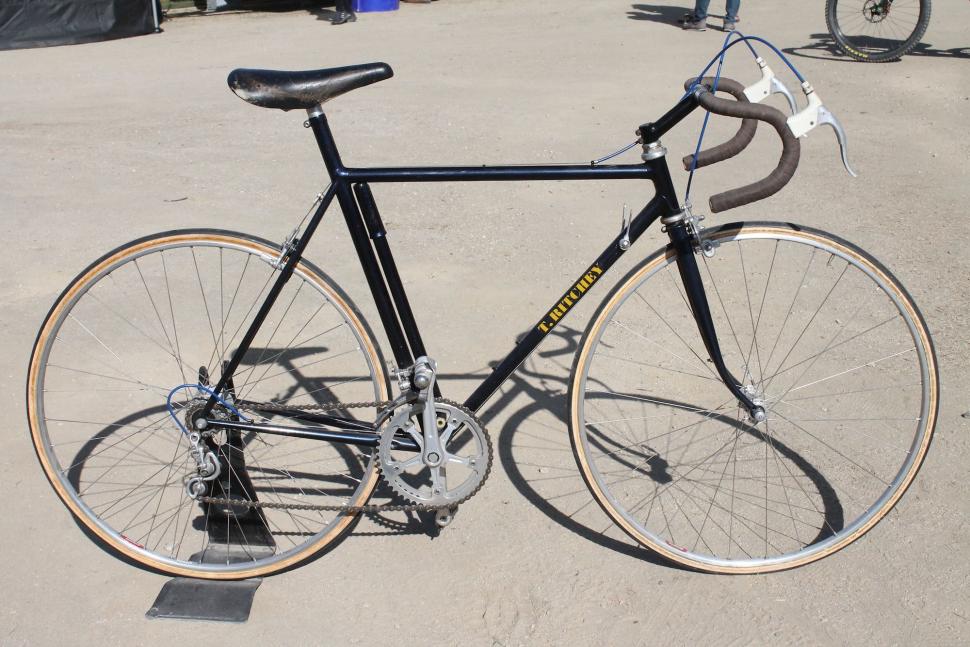
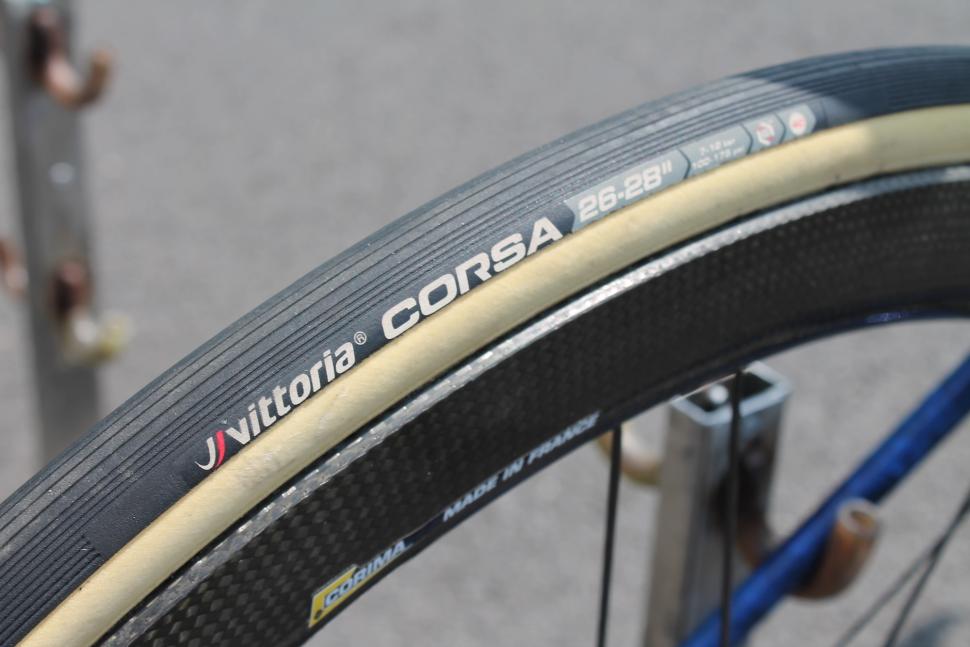
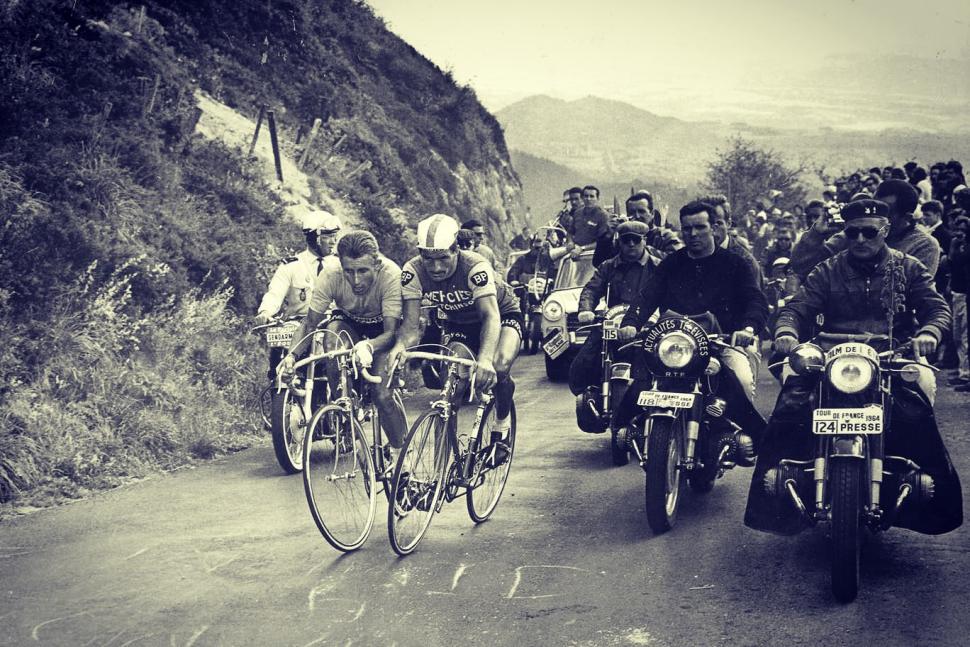

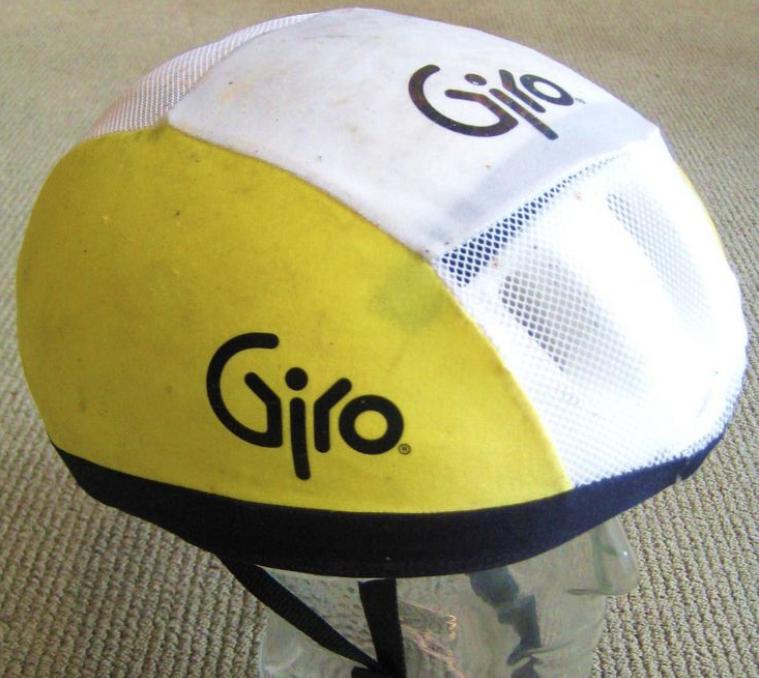


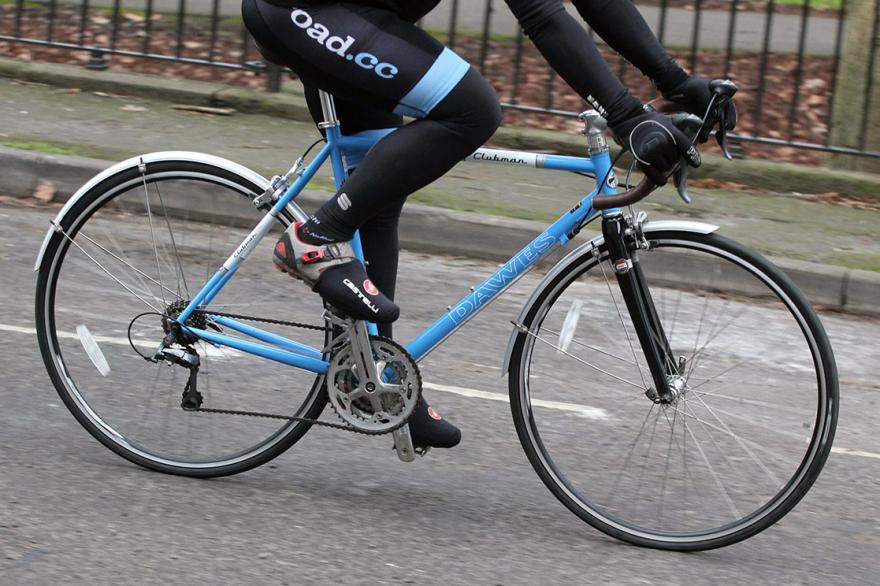
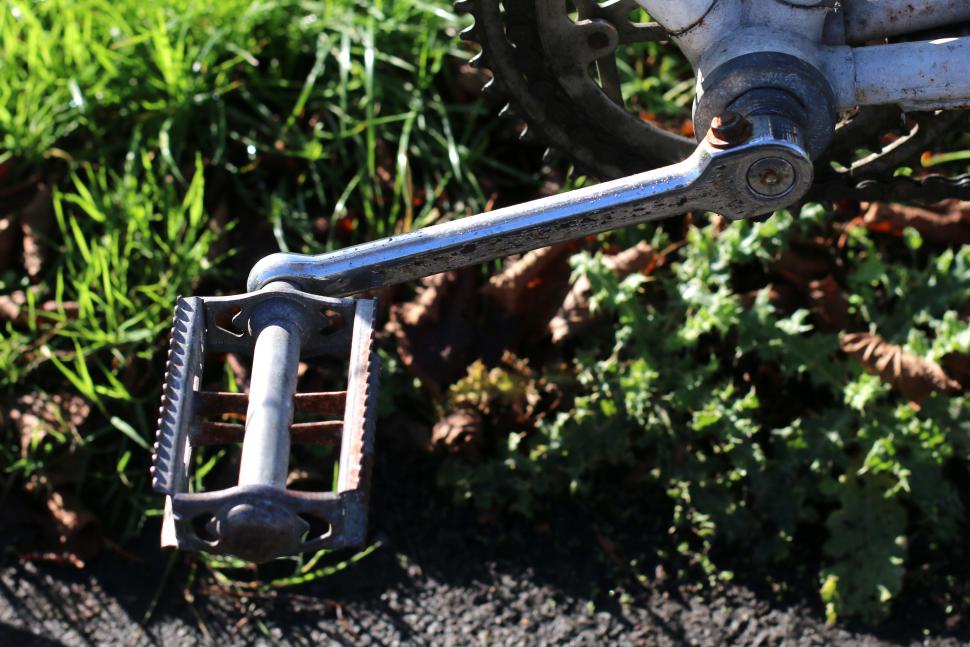

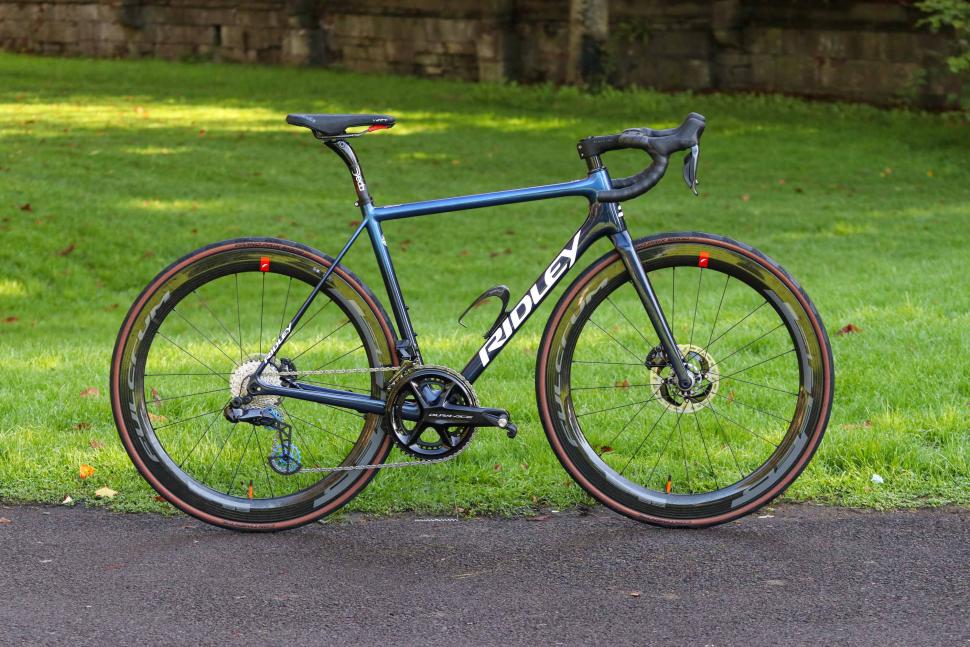


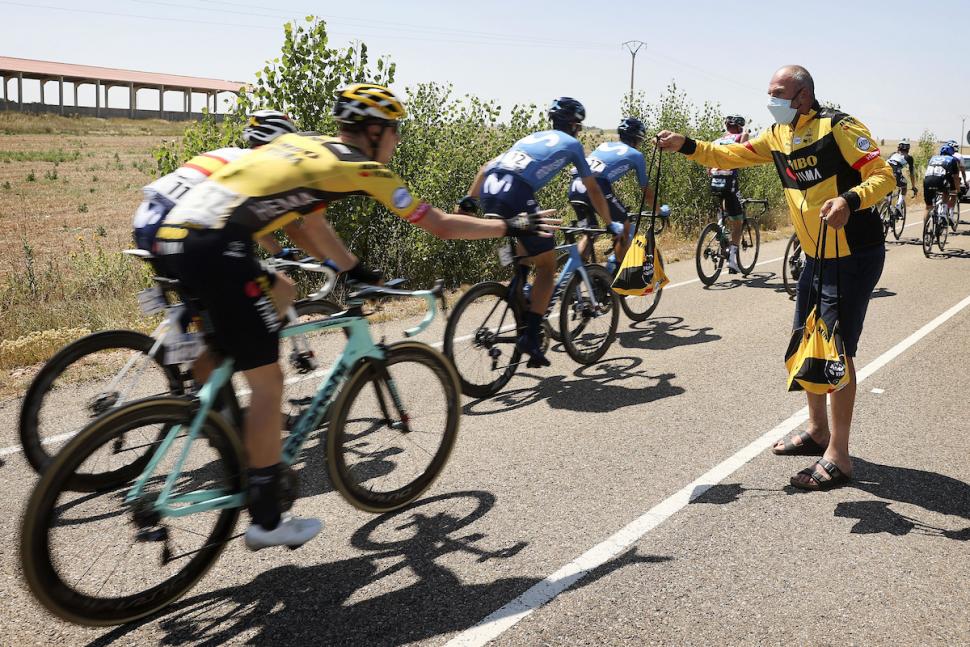




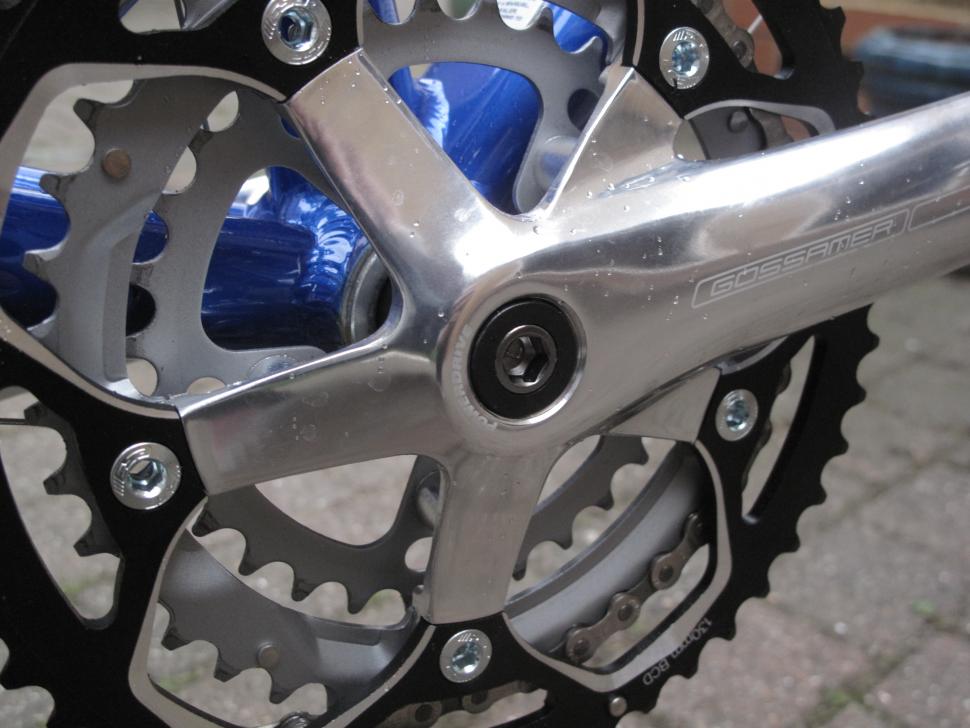


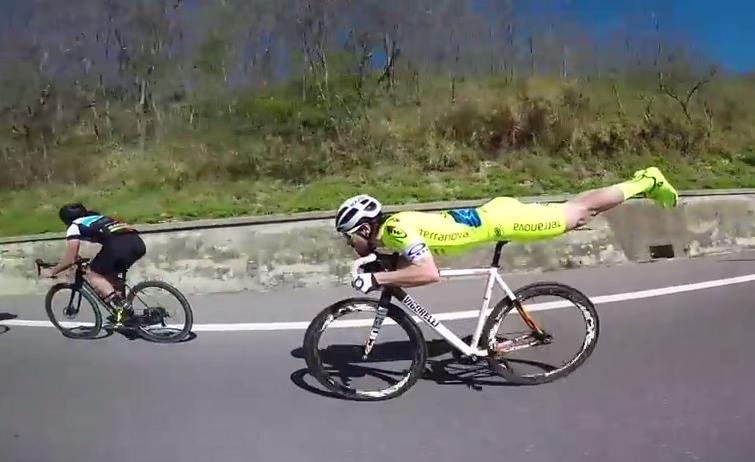

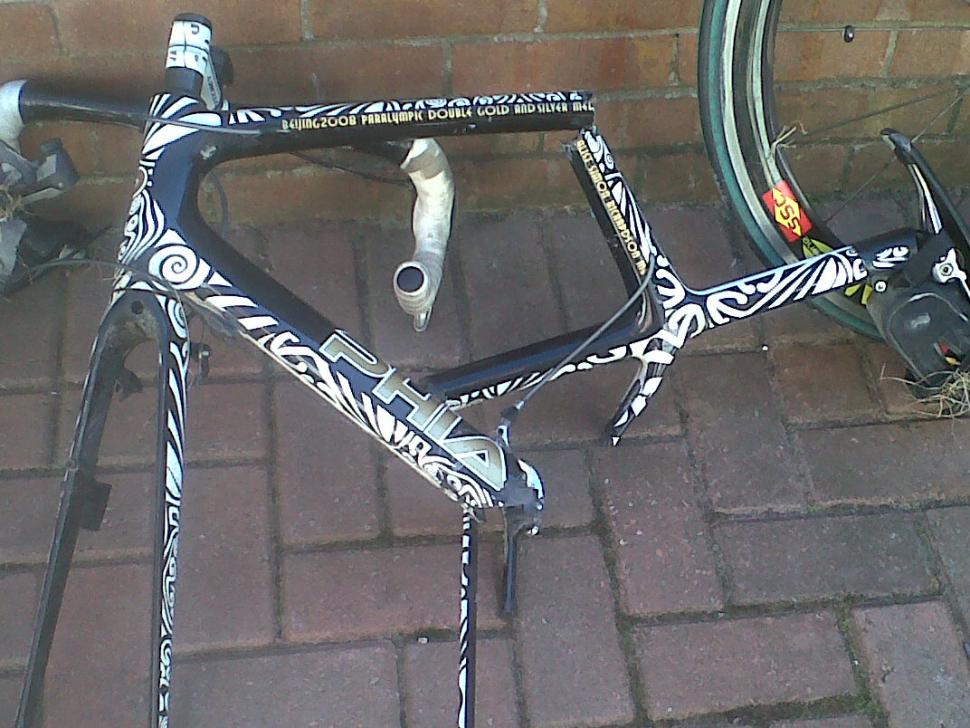
Add new comment
21 comments
Granny ring:
Granny gear was the phrase we used, way before the days of mountain bikes. Triples and larger rear sprockets have been around for a looong time.
I really dislike the expression "Queen stage". I mean it works in Spanish as "Etapa reina" and sounds fine but the literal translation just doesn't sound like genuine English to me. Just as you translate "Me ha tocado el gordo" as "I won the jackpot" and not "The fat one has touched me" (the literal translation which conjures up rather disturbing images). Even more irritating is that I can't actually think of a better alternative. So "queen stage" it must remain
I'm surprised not to find 'lo-pro' in the gone but not forgotten section.
I had 16 years away from the sport before returning to a TT in 2017. I started talking about lo pros and got some baffled looks.
"Geroff and milk it!" Once upon a time, The Tour of Britain was sponsored by the Milk Marketing Board...
1 1/4 is 32 mm, hmm we've come full circle!
Anyone remember these bad boys?
#BringBackTheShortie
Indeed.
But why did we have them ? They did nothing 😂
These people would disagree:
https://www.renehersecycles.com/return-to-the-ar-high-country-race/
Dropped is from the music industry as when a new album "drops" at midnight. Like vinyl dropping onto a hydraulic press.
I saw an advert which mentioned new phones dropping. A bad idea in my opinion.
Hmm, or a record being dropped onto a deck for its first play.
I always assumed it meant "dropped into the record stores".
Does luft really refer to turning a cap peak up now? Mingling as I do with fellow old ex-racers, luft will always mean having a cap sitting on a rider's head with effortless and elegant elevation. Note in the examples below that the position of the peak is irrelevant to the luft.
Sean Kelly, King of luft
Big Mig, another king of luft
Fuente displaying daring and precarious luft. Saronni doing the luft.
How does one achieve that degree of luft?
All my casquettes fit like a skull cap, I do have a large bonce though.
The cap was sort of perched on your hair rather than your skull, it was to show the baldies what they are missing.
Skid Lid was an American brand of helmet with a distinctive cruciform design. There are pictures here and here. The caption on the second link says "were known to exacerbate head injuries". The design, from the mid-1970s, pre-dates the polystyrene foam helmets we like to argue about today. I guess it was made for good ventilation.
Wow, that's a blast from the past! I can remember the late Richard Ballantine being an advocate of that brand. Skid lid though was a term adopted rather than invented by that manufacturer: the Oxford English Dictionary dates its earliest use, to describe motorcycle helmets, to 1958.